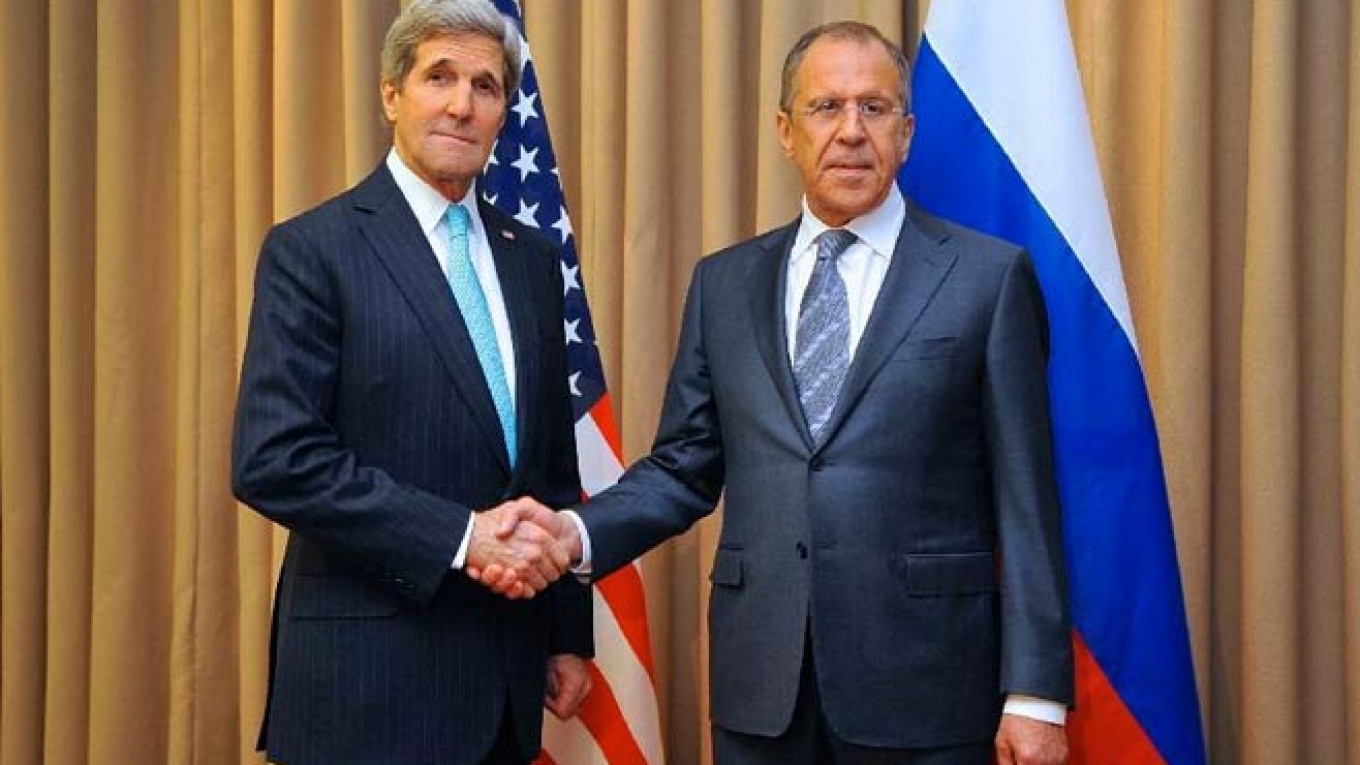After an extended and dramatic meeting in Geneva on Thursday, the U.S., the European Union, Russia and Ukraine reached an agreement on some steps to de-escalate the crisis in eastern Ukraine. The deal calls for the disarming of all illegal groups and requires protesters to vacate all occupied buildings. In return, protesters would be given amnesty for all but capital crimes, and the Ukrainian government would begin an inclusive and transparent process to draft a new constitution giving some powers to the regions.
While the Geneva agreement sounds good in theory, it is unlikely that it will last long. To understand why, consider how U.S. President Barack Obama praised the agreement for allowing "Ukrainians to make their own decision about their own lives." This is precisely what Russia is trying to avoid. If left entirely to their own devices, a majority of Ukrainians might well decide to align their country with the West, which could include EU and possibly even NATO membership.
As President Vladimir Putin made clear in his March 18 speech announcing the annexation of Crimea, Ukraine is an existential issue for Russia for cultural, historical, economic and geopolitical reasons. Putin's entire objective from the beginning has been to avoid Ukraine's departure from Moscow's orbit. From the Russian perspective, any permanent deal with Kiev must possess two main conditions. First, Moscow wants Ukraine's new constitution to implement an extreme version of federalization. For Putin, this means the eastern regions of Ukraine nearest to Russia could make their own independent economic and foreign policy choices, ensuring Russian influence over a large swathe of the country.
Second, Putin also wants to address the future of NATO in Russia's backyard. Many in the West have not appreciated the humiliation and fear that NATO expansion throughout Central and Eastern Europe and up to Russia's borders engendered in Russia over the years.
During the annual call-in show on Thursday, Putin laid out how Russia's annexation of Crimea was partially driven by fear of Ukraine joining NATO. "But we also followed certain logic," Putin said. "If we do not do anything, Ukraine will be drawn into NATO sometime in the future … and NATO ships would dock in Sevastopol, the city of Russia's naval glory." In this context, it is inconceivable that Putin would sign off on any deal unless it ensured that Ukraine would never join NATO.
Russia is unlikely to simply take a step back and allow Ukrainians to make decisions about their own lives. Russia's desired version of a new Ukrainian constitution would essentially neuter any central government in Kiev and pave the way toward turning the eastern regions into Russian vassals. If Kiev is willing to accept these draconian conditions, a deal may yet be possible. Otherwise, Putin will surely continue to destabilize Ukraine until he gets what he wants.
The Geneva agreement also does not require a timeline for Moscow to pull back the 40,000 Russian troops massed on Ukraine's eastern borders, and Putin again reminded the world on Thursday that he had already been granted the right to use armed forces in Ukraine by the Federation Council. We should enjoy the good feelings engendered by Geneva, but they will not last long.
Josh Cohen is a former USAID project officer involved in managing economic reform projects in the former Soviet Union. He contributes to a number of foreign policy-focused media outlets and tweets at @jkc_in_dc
A Message from The Moscow Times:
Dear readers,
We are facing unprecedented challenges. Russia's Prosecutor General's Office has designated The Moscow Times as an "undesirable" organization, criminalizing our work and putting our staff at risk of prosecution. This follows our earlier unjust labeling as a "foreign agent."
These actions are direct attempts to silence independent journalism in Russia. The authorities claim our work "discredits the decisions of the Russian leadership." We see things differently: we strive to provide accurate, unbiased reporting on Russia.
We, the journalists of The Moscow Times, refuse to be silenced. But to continue our work, we need your help.
Your support, no matter how small, makes a world of difference. If you can, please support us monthly starting from just $2. It's quick to set up, and every contribution makes a significant impact.
By supporting The Moscow Times, you're defending open, independent journalism in the face of repression. Thank you for standing with us.
Remind me later.







